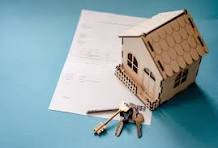
The first step in negotiating for a home to buy? You need to learn what homes are selling for in the neighborhoods in which you want to buy. That way, you’ll know when an owner is trying to sell a home for an unreasonably high price and when someone is selling for a fair one.
For example, if similar homes are selling for $350,000 and a home seller is asking for $400,000, you might have better luck negotiating a lower price if you come armed with stats showing that the owner is overvaluing the property.
The best way to get accurate comparable sales figures is by working with a real estate agent. Your real estate professional can typically provide you with comparable home sales price data to help you determine what a fair price is in the area in which you are looking to buy a home. In fact, working with an agent is critical in the negotiating process. If the home you are considering is overpriced, your agent should spearhead the negotiations for a lower sales price, sparing you the stress of the back-and-forth over a final price tag.
Get preapproved for a mortgage
Being pre-approved makes you a more attractive buyer to a home seller. Sellers prefer working with buyers who are already approved for a loan. This makes it less likely that your offer will fall through. You’ll have more leverage when negotiating for a lower sales price if you can show a seller that you’ve already lined up financing and can get to the closing table.
Work with a lender to get pre-approved for a mortgage. During this process, a lender will require documentation to prove your income, savings and debts; pull your credit; and review your finances to determine how much money they are comfortable lending to you in the form of a mortgage loan.
Your lender will provide you with a pre-approval letter stating how large a loan you qualify for, at what terms (interest rate and length of mortgage) and how long your pre-approval is valid.
Order a home inspection
Your real estate professional should advise you to include a home inspection contingency in your home purchase offer. An inspection can save you money by alerting you to expensive problems in the home you want to buy. If the repairs or problems are too big, you have the option to cancel the sale, saving you enormous amounts of time and money.
In other cases, a home inspection can be especially useful when you are trying to negotiate a lower sales price.
Say an inspection turns up several problems, such as a leaky roof, broken seals on insulated windows and an inoperable toilet. Armed with your inspection report, you can ask the seller to repair the deficiencies, lower the sales price or provide a credit at closing to cover the repairs.
Keep in mind that if there are enough problems and the seller isn’t willing to fix them or lower the asking price, you might be able to walk away from the home sale without suffering any financial penalties. Consult with your real estate agent to ensure your home inspection contingency protects you sufficiently.
Be willing to walk away
Finally, be willing to walk away from a sale. If you can’t negotiate the price you want, you must be willing to break off discussions and look for a different home, no matter how much you love the property that you want to buy.
Ultimately, saving money on a home purchase is your goal, and a home with many repair issues will cost you over time. Additionally, you never want to purchase a home for more than it’s worth.









